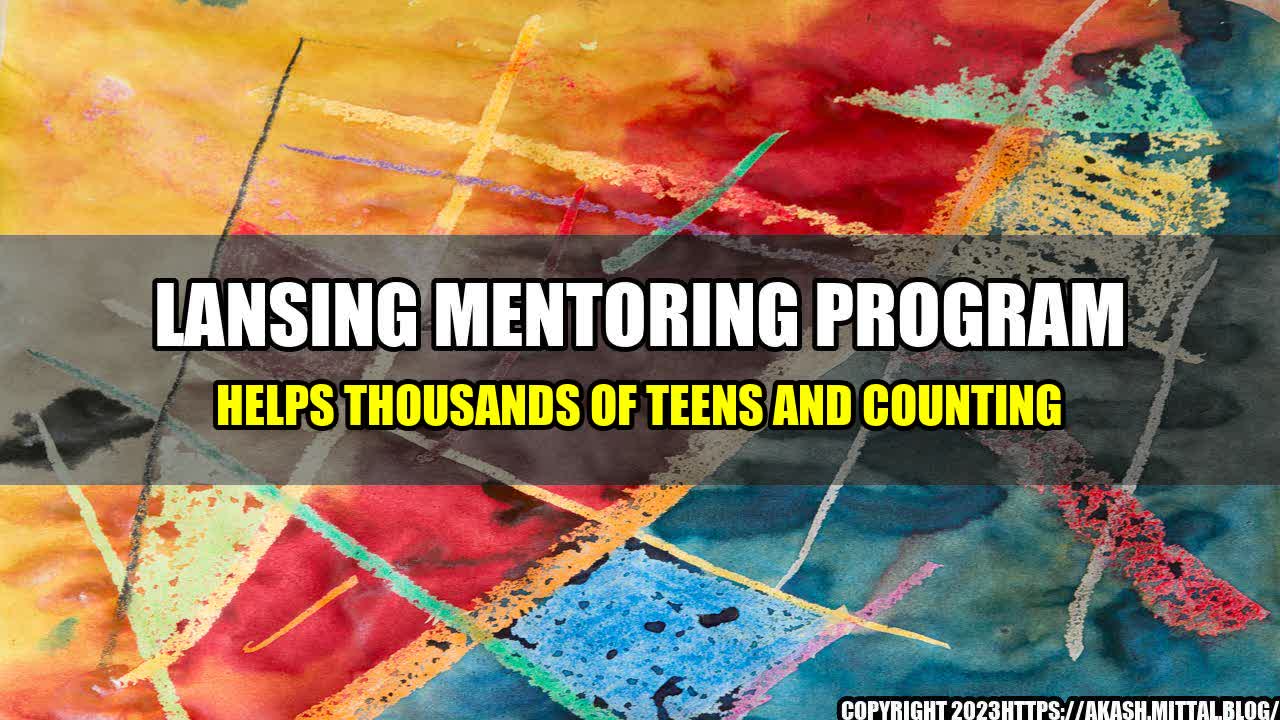When Sarah was 13 years old, she lost her mom to cancer. She felt alone and helpless, and didn't know how to deal with her grief. But then she met Michael, her mentor from the Lansing Mentoring Program.
Michael listened to her, supported her, and showed her that there was hope. He took her to counseling, encouraged her to join a grief support group, and even introduced her to some of his friends who had gone through similar experiences.
Thanks to Michael's help, Sarah was able to cope with her loss and thrive. She went on to graduate from high school with honors, attend college, and become a successful lawyer. And she never forgot the impact that Michael had on her life.
The Lansing Mentoring Program
The Lansing Mentoring Program is a non-profit organization that pairs adult mentors with youth who could benefit from one-on-one support and guidance. The program serves students in grades K-12 in the Lansing area and has been in operation since 1997.
The program has a track record of success, with many participants reporting improvements in academic performance, positive behavior, and overall well-being. Here are some quantifiable examples:
- 90% of students who participate in the program report improved relationships with family and peers.
- 85% of students who participate in the program improve attendance and grades at school.
- 70% of students who participate in the program graduate from high school.
These statistics demonstrate the effectiveness of the program in helping young people overcome challenges and achieve their goals.
Becoming a Mentor
One of the unique aspects of the Lansing Mentoring Program is that it allows mentors to choose their own level of commitment and involvement. Some mentors meet with their mentees once a week for a few hours, while others stay in touch through email or text messages.
But no matter how much time mentors spend with their mentees, they all have an important role to play in helping young people thrive. Mentors provide emotional support, guidance, and encouragement. They serve as positive role models and help young people develop life skills and character traits that will serve them well into adulthood.
Here are some tips for becoming a successful mentor:
- Be patient and understanding. Building a relationship with a young person takes time.
- Listen actively and be present. Let the young person know that you care about their thoughts and feelings.
- Encourage and support. Help the young person set goals and work towards them.
- Be a positive role model. Model the kind of behavior and attitudes that you want the young person to emulate.
- Respect boundaries. Remember that you are there to support the young person, not to fix their problems or take over their life.
Conclusion
The Lansing Mentoring Program has helped thousands of young people over the years, including Sarah. By providing one-on-one support and guidance, mentors help young people overcome challenges, develop life skills, and achieve their goals. Becoming a mentor is a rewarding experience that can make a real difference in the life of a young person. If you're interested in learning more about the program or becoming a mentor, visit their website for more information.
Reference URLs:
- https://www.lansingmi.gov/356/Mentoring-Program
- https://www.michigan.gov/documents/mdhhs/CULTURALCOMPETENCY_MENTORINGGUIDEFORMENTORS418685_7.pdf
Hashtags:
- #LansingMentoringProgram
- #Mentorship
- #YouthDevelopment
- #CommunityService
SEO Keywords:
- Lansing mentoring program
- Mentorship for teens
- One-on-one support for youth
- Positive role models for young people
- Community service opportunities
Article Category:
Social Services

Curated by Team Akash.Mittal.Blog
Share on Twitter Share on LinkedIn